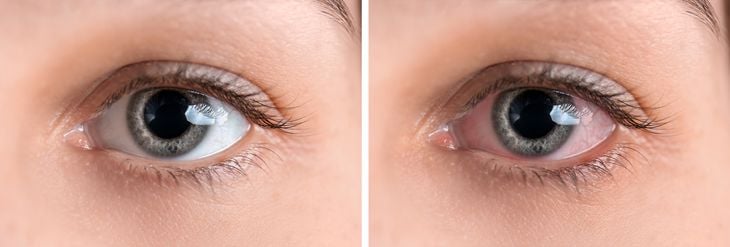
Uveitis refers to the inflammation of the eye's middle layer, which consists of the iris, ciliary body, and choroid. Several fungal, viral, or bacterial infections lead to uveitis, as do certain autoimmune (systemic) and inflammatory conditions. In most cases of uveitis, however, the exact cause is unknown.
Types of Uveitis
Four classifications of uveitis exist. The exact parts of the eye affected by uveitis differ by classification.
- Anterior uveitis (iritis) occurs closer to the front of the eye, and refers to inflammation of the iris or the iris and ciliary body.
- Intermediate uveitis (cyclitis) refers to the inflammation of the ciliary body alone.
- Posterior uveitis (choroiditis) refers to the inflammation of the choroid, located closer to the back of the eye.
- Panuveitis (diffuse uveitis) refers to the inflammation of the entire middle layer of the eye.
Uveitis Symptoms
Uveitis symptoms vary depending on which type of uveitis the patient has. Anterior uveitis usually results in sensitivity to light, eye pain, redness, and a reduction in visual acuity. Interior and posterior uveitis cause floaters and blurred vision, but usually do not result in any pain. A combination of all these symptoms often accompanies panuveitis.
You should visit an eye care professional immediately if you experience any unusual symptoms around the eyes. If left untreated, uveitis can lead to cataracts, permanent vision loss, glaucoma, detached retina, and optical nerve damage.
Diagnosis and Treatment
In order to diagnose uveitis, an eye care professional will conduct a complete eye exam and a thorough consideration of your health history. Although the exact cause of uveitis is not always clear, a determinable cause is extremely helpful for treatment. If an eye care professional suspects an underlying cause for uveitis, he or she might refer you to a specialist for treatment.
In addition to receiving treatment for any condition causing uveitis, uveitis itself is usually treated with a steroid to reduce inflammation. Depending on the type of uveitis, a steroid is administered in eye drops, orally, or with injections. As anterior uveitis occurs closer to the surface of the eye, steroids in the form of eye drops are usually sufficient. Other forms of uveitis require oral steroids or injections. Sometimes, a small surgical drug implant is recommended for the administration of the anti-inflammatory steroid. An eye care professional might also prescribe eye drops to dilate the eye and reduce pressure.
